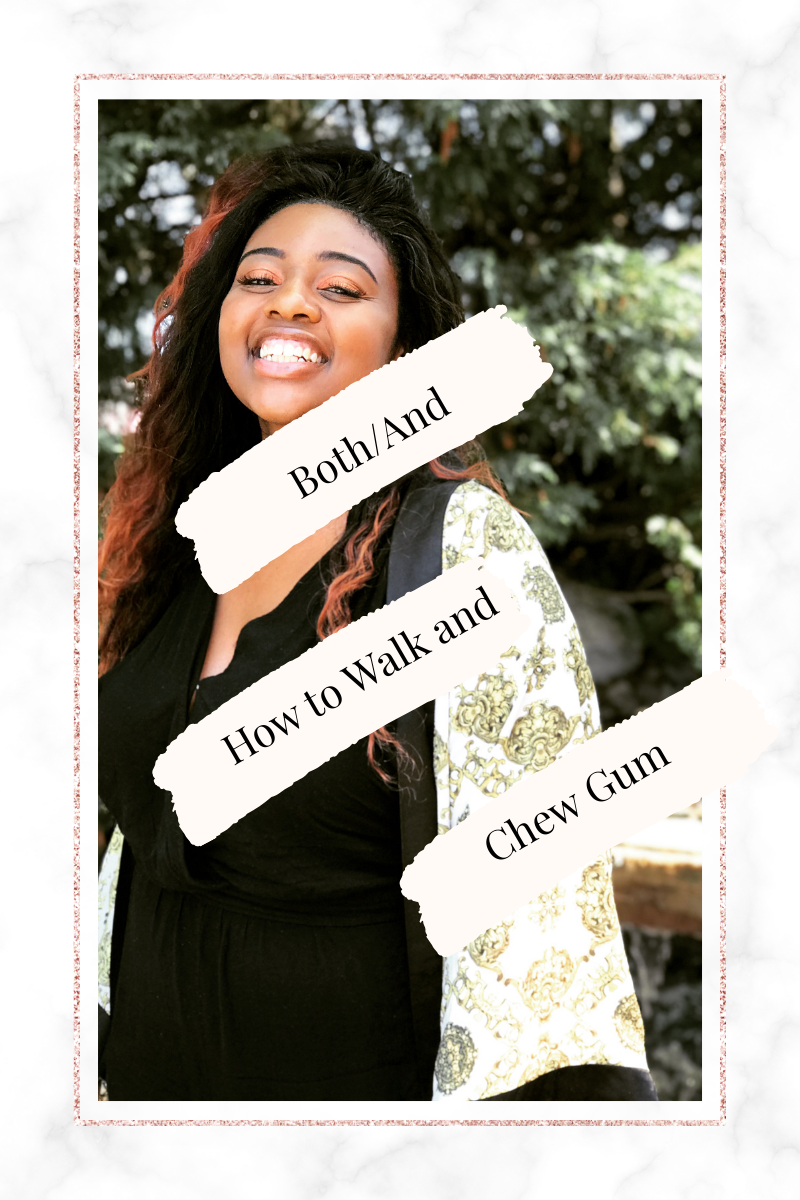For Real Tho
- Angelique

- Sep 25, 2018
- 4 min read
I make this joke that I am both a Christian and a young black woman. Sometimes the young black woman responds in situations and the Christian bows her head in prayer.
I personally think the analogy is funny, but I know that the fact that I still sometimes think of my salvation in terms of something apart from me is an issue.
A few months ago, my pastor did a Bible Study about the lying prophet. While there is a lot to unpack from the story, I want to point out that a similar attitude cost a man his life.
God told a prophet (Prophet A) after he delivered the word God had given for the king, to go home a different way than he came. God told Prophet A not to stop to eat, drink or sleep anywhere but to go straight home. There was another prophet who lived in the city where Prophet A was passing through, let’s call him Prophet B.
Prophet B heard about what Prophet A had done in his city and decided that he was going to invite Prophet A to dinner. (1 Kings 13:6-31)
Prophet B wanted Prophet A to come to dine with him simply to satisfy his own curiosity. To please his own flesh.
And to get what he wanted he lied.
He acted in his flesh according to his desires.
As Christians, we often turn into people who say they are a certain way and act contrarily. We become lying prophets when it is convenient for our flesh.
We say we love God and believe that the Bible is the infallible Word of God, yet we pick and choose when we are going to be obedient to His Word.
For example, Matthew 18:21-22, “Then came Peter to him, and said, Lord, how oft shall my brother sin against me, and I forgive him? Till seven times? Jesus saith unto him, I say not unto thee, Until seven times: but Until seventy times seven.”
Seventy. Times. Seven.
That’s 490 for that brother, not including any other brothers, sisters, uncles, aunts or cousins. The thing that frustrates me about this scripture is that there are no written/implicit exceptions.
It does not provide a “get out of jail free” card for any justifications or feelings I may harbor to allow unforgiveness to remain in my heart. The scripture tells me to forgive the way I want to be forgiven. And further when I choose to not forgive for whatever reason, I’ve allowed myself to become a lying prophet.
Tough. Stuff.
How about this one, “Jesus said unto him, Thou shalt love the Lord thy God with all thy heart, and with all thy soul, and with all thy mind. This is the first and great commandment. And the second is like unto it, Thou shalt love thy neighbour as thyself. On these two commandments hang all the law and the prophets.”
(Matthew 22:37-40)
Again, there are no clauses here that says that I don’t have to love people who don’t love me. There are no asterisks that say that I can treat people who get on my nerves according to my mood. There are no, “but if they talk about you behind their back, tell the world their worst secrets.”
Jesus requires us to love God with our whole hearts, and then to love our neighbors how we love ourselves.
Do you see how God does that?
He gives a very clear description on how to do what we sometimes feel is impossible.
He says to put yourself in your enemies’ shoes.
A few months ago, I wrote a blog called, “Forgive” that speaks to forgiveness specifically, but the principle applies across the board. In the “Forgive” blog the idea emphasized is this: You are the villain in someone’s story. You have knowingly or unknowingly hurt someone. You have betrayed a trust, or acted selfishly, or not really thought before you spoke, and just like you would want forgiveness/love extended to you in these situations, God expects us to extend that same courtesy to others.
Yes, I know we aren’t God and we can’t love exactly like God, and we can’t forgive exactly like God, but that’s what the Holy Ghost is for.
Also, we should at least try. We can’t look at the situation in defeat and expect victory.
You won’t win a battle you refuse to fight.
Because Prophet B lied, it cost Prophet A his life. Prophet B decided that what he wanted superseded what God said and Prophet A paid for that decision.
When I decide that I will let the "black woman" answer instead of the Christian, when I separate my faith from my actions, I have decided that I won't walk in who God has called me to be, effectively risking someone else’s salvation.
Do I really want that responsibility?
Do you?

Do you really want that responsibility in your hands?




Comments